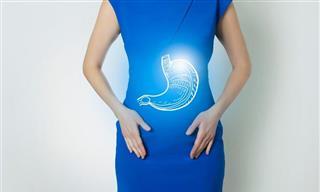1. Pain That Spreads to the Arm
Many men experience pain in their left arm, while women experience the same pain in either arm. Some women have even said that they experienced an unusual elbow pain before having a heart attack. This occurs because the pain from your heart travels to your spinal cord where many nerves of your body are connected and your brain gets confused and thinks that your arm is in pain, when it’s not actually the case.
2. Coughing That Won’t Stop
Persistent coughing can be caused by a number of factors, one of which is cardiovascular disease. Persistent coughing which produces a pinking liquid that contains some blood is very common with heart failure. Coughing can also be a symptom of a much more serious symptom, which is dyspnea – a sudden shortage of breath.
3. Swollen Legs, Ankles, and Feet
When your heart is not working well, fluid from your blood vessels leaks into surrounding tissues. This is more noticeable in your legs and feet because of gravity. This is known as a peripheral edema and many people who have it don’t actually have heart disease. However, it’s still a common symptom among heart disease patients, so if you notice swelling, visit the doctor.
4. Lack of Appetite and Feeling Nauseous
Many people who are suffering from heart disease have a lack of appetite and/or nausea. This is caused by a build-up of fluid around the liver and the intestines that interfere with proper digestion. These symptoms are usually followed by abdominal pain and if you’re experiencing them all together, you need to visit the doctor.
5. Extreme Levels of Anxiety
A number of studies have shown that people who suffer from extreme anxiety from very early on in their lives are prone to heart disease. Anxiety can be caused by either a very stressful lifestyle or various disorders such as panic attacks and phobic anxiety. Some of the effects of anxiety on your heart include increased blood pressure, decreased heart rate, and tachycardia.
6. Losing Consciousness or Fainting
Feeling lightheaded and losing consciousness is very common among heart patients. This occurs because the heart isn’t pumping blood well due to a blocked artery or the narrowing of a valve. If you ever feel short of breath and you faint for a short period of time, consult your doctor immediately.
7. Skin Rashes or Unusual Spots 
Two research projects have shown that eczema and shingles are high-risk factors of heart disease. Those who have had eczema were found to have a 48% chance of suffering from high blood pressure and a 29% chance of having high cholesterol. Furthermore, those who have had shingles were 59% more likely to have a heart attack than people who have never had this condition.
8. Your Skin Becomes Paler or Takes on a Bluish Color
This is not a common symptom, but when it does appear, it could be due to reduced blood flow and a decreased number of red blood cells. Shock is the main reason for this symptom and the paleness can appear over your entire body or a certain part, such as a limb. If you’re paler than usual but are not in shock, visit the doctor as it could be anemia.
 Go to BabaMail
Go to BabaMail





















































